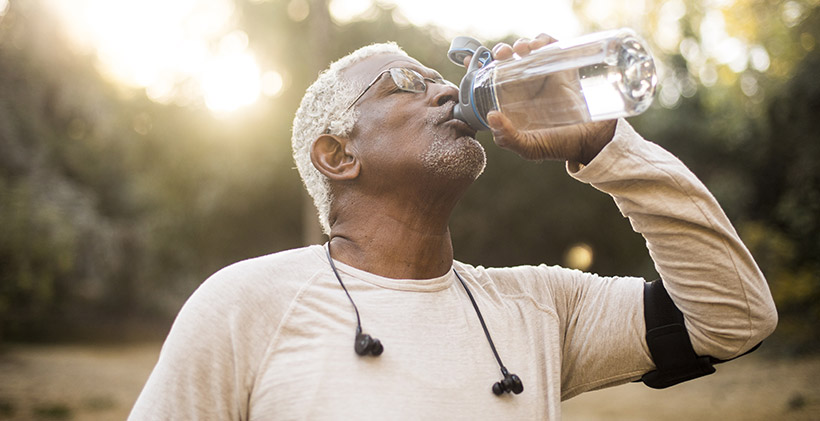Summer has arrived, providing welcome relief from spring allergies. While having fun this summer, there are some seasonal safety considerations for older adults.
June is National Safety Month, when the National Safety Council and other groups strive to raise awareness of the top causes of injury. What are some steps older adults can take to stay safe this summer?
Store Medications Properly
If you take any medications, make sure you understand how to store them in the heat. Some medications lose effectiveness when stored at temperatures above about 78 degrees Fahrenheit. If you’re traveling, keep heat-sensitive meds in a cooler.
Guard Against Heat Stroke
Hyperthermia — or unusually high body temperature — can begin with little warning during the summer. As hyperthermia advances, it can become a life-threatening case of heat stroke. Use caution when exercising in the heat, and always dress for the weather with lightweight, natural fabrics. If you or a companion experience symptoms like flushed skin, vomiting, headache, confusion, temperature above 104, and lack of sweating, seek medical attention immediately.
Stay Hydrated
Older adults have increased vulnerability to dehydration because of physical changes that come with aging, and some older adults may be less aware of thirst. If you’re taking a walk or going for a drive, remember to take along plenty of water, and drink often.
Keep in Touch
It’s always a good idea to stay in touch with friends and loved ones. In the heat of summer, be sure to let someone know if you plan to spend time outdoors. Consider checking in periodically with neighbors as well, and keep a list of emergency phone numbers handy in case you experience any concerning symptoms.
Protect Your Skin and Eyes
To protect your skin, always wear a broad-spectrum sunscreen when you plan to spend time outdoors. If you do get sunburned — with acute symptoms, including burning, blisters and redness — check in with your doctor. Shield your eyes from harmful UV rays by wearing sunglasses when you are out and about.
Use Caution with Food
The risk of food poisoning increases significantly in the summer, when food is left sitting out at picnics and other outdoor gatherings. Make sure any salads and other foods that include mayonnaise are not left in the heat for more than 15 minutes, and be sure to thoroughly cook hamburgers and chicken.
Keep the Bugs at Bay
Mosquitoes, ticks, wasps and other insects pose real dangers as the mercury rises. Older adults have increased susceptibility to encephalitis and West Nile Virus, and ticks can cause Lyme disease and other serious illnesses. If you’ll be outside, wear light-colored clothing to help spot ticks. After checking with your doctor, spray yourself with a repellant that includes DEET. If you are at risk for an allergic reaction from stings, carry an EpiPen at all times.
By taking a few precautions, you can have fun and stay healthy during National Safety Month and throughout the summer.

